The church I get the privilege of working at has a daily reading plan through the Bible. One week ago, we happened upon what most commentators call the darkest prayer in Scripture, Psalm 88. This was extremely fortuitous timing, as I had wanted to match my preaching for that week with the theme of lament.
Lament has an archaic, old English feel to it, but it allows for the expression of the dark night of our souls in a relationship with God.
Lament is a biblical theme that has been left unexplored by far too many, who simply opt for trying to bring joy out of every moment. The truth is that the Bible imposes this theme upon us (given it contains an entire book called Lamentations) and it is a theme life itself imposes on us.
Read through Psalm 88. Even given the sound teachings of many churches, this prayer looks as if it should not be within the sacred pages of Scripture. Yet, it is written by one of the wisest men in the world not named Solomon (1 Kings 4:30-31) who led songs in the house of the Lord (1 Chronicles 15:16-17).
The very fact that this prayer, and many others like it in the Psalms, is written in Scripture gives us sufficient reason to believe God understands the place of lament and sadness in our worship to Him.
Throughout the prayer, you see that Heman, who first prayed this prayer, is honest with God, despite his struggles. He knows God can handle the grief that is thrown about in this prayer.Heman goes as far as to list himself among the dead, believing God is abandoning him. All his questions and statements revolve around death. You finally come to the last line, which either reads “my companions have become darkness” or “darkness is my closest friend.“ Either way, not exactly how you expect a prayer written in the prayer book of the Bible to end.
This prayer illustrates how our spiritual dark nights may not end after a few prayers or even a season of prayers, that they may last until our very deaths. However, it also shows how we can lament before God in this bleak state. These lament psalms prove that sadness and mourning are right responses to the evils and ugliness of this world. The Bible itself gives us permission to petition God to come be the King of our lives because we know that He cares for us.
God’s Word knows that God can handle our struggles, just like He handled those of Heman, those of David, and those of Jesus up on the cross.
There remains more to these Psalms of lament, however, than just pure individualism. Israelites and Christians have sung the Psalms for centuries, lamenting over the state of Israel, the world, and the effects of the Fall. People sing them in all different contexts of grieving because they express the lament in their hearts.
The things going on in the world around us are disorienting to many of us: ISIS, shootings, racial tension, violence and various other issues. Yet, we as Christians have a method to deal with these tragedies, to mourn with those who are mourning (Romans 12:15) and to plead with God to heal the faults of the Fall.
We do not have to turn to immediately posting agenda laden videos or remarks that use the tragedies to further our own agendas. Seeking truth and justice certainly have their time, but we recognize that each of these tragedies involve people made in the image of God who have inherent value from the author of Creation. We have the impetus to not only sympathize for people’s tragedies, but to empathize with them as our Savior did for us. I don’t know what it feels like to be an African American, I don’t know what it feels like to be a Hispanic in southeast Bakersfield CA, and I don’t know what it feels like to be a police officer with a family waiting to see me alive at home. But I do know of a way to express love and sorrow for my fellow image bearers by believing their pain is just as great as mine.
Let us be the church that laments not only for our own sorrows, but cries out with the world against all of the effects of the Fall. Let us model our Savior and step into pain with a love so great that all peoples will be enticed to come find our good God.
For we know that Biblical lament is not fruitless. It leads us to develop a resiliency to trust in God, just as Heman did. He cried out, “Lord, God of my Salvation.” Not, “You will be the God of my Salvation if you save me now.” He trusted in God’s purposes, just as David always trusted in God (Psalm 13). This does not mean Heman didn’t experience emotion or darkness.
However, he believed, even in the silence, that he had to trust the God who did not always deliver what he wanted, but who always gets what He wants.
I know it’s not always this easy. I went through a dark night for a number of months when I experienced debilitating back pain as I was fighting through the early stages of marriage finances and trying to take 18 units of graduate work to be a good pastor. God did not always seem to be around. I vividly remember sitting in the car with my wife after hearing a sermon on God’s plan through the Exodus and telling her, “I don’t think God has a plan for this pain, or for me.” I lost God in the darkness. Yet, from there He gave me the grace to trust Him again. I brought my lament before Him as I read through the Psalms for the first time in my Christian walk.
We must have the courage to be honest with God. Our God is so Great that it is He and He alone who has the power to fix these situations or calm our hearts before Him. And our God is so Good that He genuinely cares about these hurts. However, the beauty of lament as a part of our worship is that lament rarely ends in darkness. Ecclesiastes 7:3 tells us, “Sorrow is better than laughter, for by sadness of face the heart is made glad.”
The biblical design of lament in the human heart is that it actually draws us deeper into a relationship with the God who laments with us. This allows us to have a fuller expression of joy, faith, hope and love.
As the light creeps into the darkest night; it is sorrow that gives way to gladness, mourning that gives way to dancing, and lament that gives way to a stronger hope, faith, and trust than were there before.
We have the hope that there is One who Laments with Us. We serve an Almighty God who stepped into the mess we made of the world in order to bring us an unshakeable hope. Jesus Himself mourned at the death of his friend Lazarus. And in the sickest, most twisted, and darkest night anyone has ever faced, it was Jesus who lamented in the Garden and at the Cross. He tells the disciples in Gethsemane that His soul is very sorrowful, even unto death, and proceeds to plead briefly with the Father to have this cup pass. Nevertheless, He models our trust by agreeing with the Father’s will. And then on the cross itself, He actually cries out the opening to Psalm 22, a lament Psalm, when He says, “My God, My God, Why have you forsaken me?” (Matthew 27:46) We have bountiful reason to lament because Christ is the fulfillment of our lament. We know that we can cast our anxiety on Him. (1 Peter 5:7)
In the darkest night in human history, Christ provided us with a never fading light of hope that each of us can look to as the clouds cover our eyes.
We can take heart as says, because Jesus has overcome the world, our sin, and the schemes of Satan. We know we will not be abandoned because Christ took the abandonment we deserve, so we can take hold of God’s promise in Hebrews 13:5 that He will never leave us.
Lament means all the more to us as believers.
It leads us deeper into relationship with the God who empathizes with our lament and who sovereignly uses it to draw us closer to Himself.
Read another Fruitful story by Nate Coleman about how he became a pastor, CLICK HERE
NATE COLEMAN graduated from UCLA and then Talbot Seminary where he earned his MDiv. Currently Nate is Pastor of Discipleship & Outreach at The Bridge Bible Church in Bakersfield, CA USA. His call to vocational ministry came through God’s long prodding at his heart and a climactic mission experience in Australia, which is the subject of his first Fruitful blog: Learning To Embrace Your Gift. He hopes to use his spiritual gifts to help all God’s sons and daughters enjoy Christ and fulfill their commission to bring His story to the world.
Your Gifts: Spiritual Gifts Discovery
God created you with purpose and passion—learn how you can take the gifts He has given you and use them to advance His Kingdom in ways you never imagined.
Here are more free articles, excerpted from the book Your Gifts shown above, one for each of the nine Team Ministry Spiritual Gifts…
- Do You Have the Spiritual Gift of Evangelism?
- Do You Have the Spiritual Gift of Prophecy?
- Do You Have the Spiritual Gift of Teaching?
- Do You Have the Spiritual Gift of Exhortation?
- Do You Have the Spiritual Gift of Shepherding?
- Do You Have the Spiritual Gift of Mercy-Showing?
- Do You Have the Spiritual Gift of Serving?
- Do You Have the Spiritual Gift of Giving?
- Do You Have the Spiritual Gift of Administration?
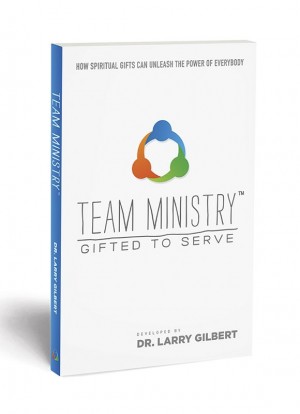
Spiritual Gifts Can Unleash the Power of Everyone!
Lead others to discover their spiritual gifts.
For pastors and group leaders.
Read This Book Now, eBook Instant PDF Download, Click Here
Read This Book with Your Group of Pastors and Shepherds, Bulk Pricing for Groups, Click Here

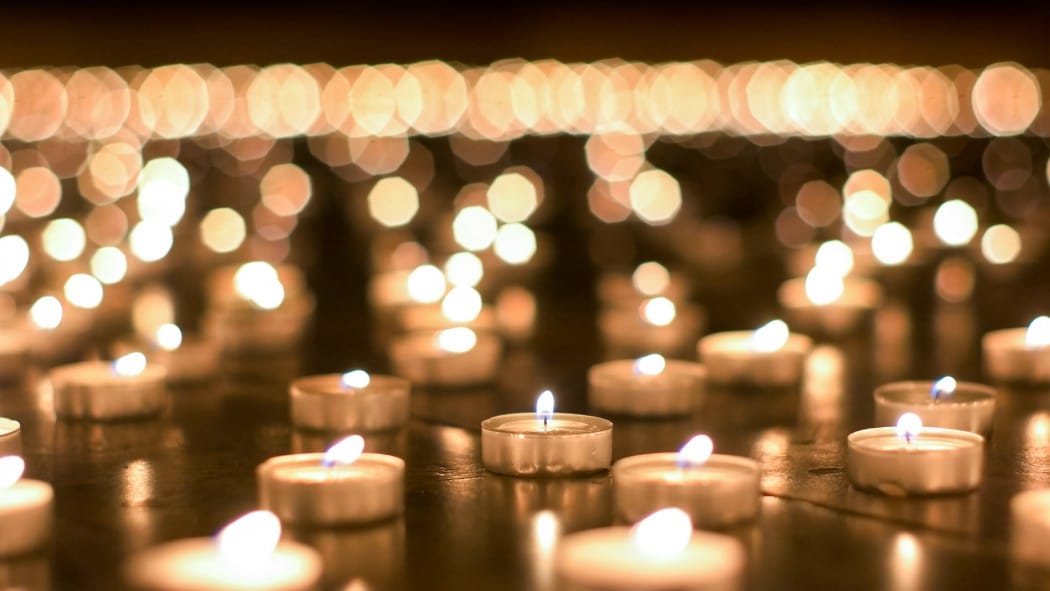

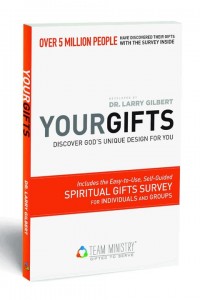

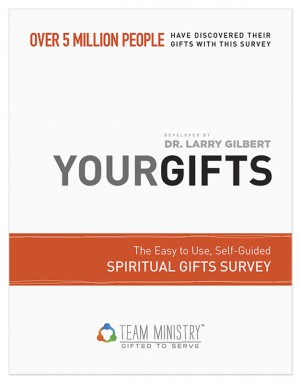
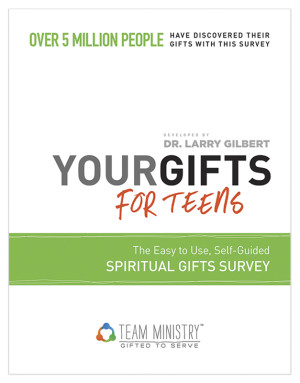

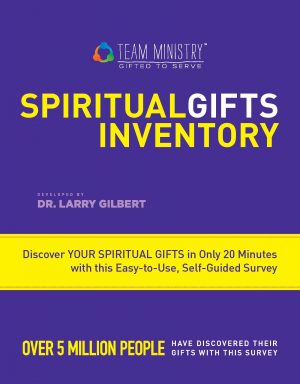
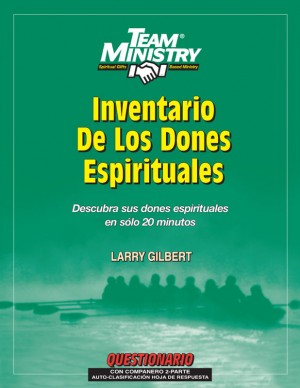





I totally agree with Nate about certain things; situations why God, our great amazing wonderful God, allows us to walk in the valley of darkness which you cannot find anything. Your fear is there. But at the end of the day you feel better. Why? Because I was able to see; feel the way how God wants me to be and to know how He works. You are still walking in His ways. He is an amazing God.
Thanks for this article. It is timely. This is also the topic, and the source of my first sermon many many years ago. Even today, 40 years later, I still cry out to God “why do you seem so far away from me?” But, I know He is still near and hearing everything I say, everything I am doing, everything I am thinking. I know He still lives within my heart. Thanks again for an encouraging article.
This is an exceptional story that shows a depth and character much like King David – who had a heart for God. Well done. May God be glorified through you and I look forward to more of your sermons! Good Shepard!
Such a great story, it reamed my heart in many places because of the need to come to a place of remembrance of the lament of life.
With that we can embrace one another as we all have the same creator. As a believer I have the opportunity to know about Lament and can stop whatever it is I am doing and commune with God. This is the part where we get the very chance to embrace suffering that belongs to us yet not reap the full effects from it because of the obedient one and only Christ King Jesus through which we have Shalom.
Thanks for opening up such great relative conversation!